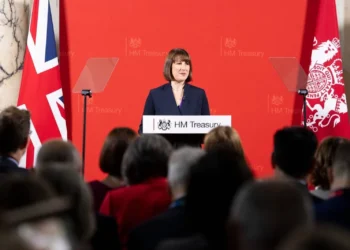As the world undergoes geopolitical shifts, alliances like BRICS (Brazil, Russia, India, China, and South Africa) have emerged as influential platforms for cooperation and development. For African nations, including Nigeria, joining BRICS offers a host of potential benefits and opportunities. While the advantages are substantial, it’s essential to weigh them against the potential risks and challenges that come with membership in this influential coalition.
Let’s look at some contextual background: The concept of BRICS, a coalition comprised of Brazil, Russia, India, China, and South Africa, emerged in 2001 as these countries recognized their shared potential to reshape global dynamics. Rooted in a collective aspiration for economic growth, political influence, and development cooperation, BRICS has evolved into a significant geopolitical force.
Notably, BRICS nations contribute over 20% of the world’s GDP, hold substantial foreign exchange reserves, and collectively represent nearly half of the global population. This coalition seeks to challenge the Western-dominated world order, fostering South-South cooperation and providing a platform for developing countries to assert their interests on the global stage.
For African countries like Nigeria, considering membership in BRICS comes against the backdrop of historical ties, shared economic challenges, and the pursuit of a more equitable global order. These nations seek avenues to advance their development agendas, improve infrastructure, and diversify their diplomatic relationships.
Joining BRICS offers African countries the promise of tapping into the coalition’s economic might, fostering technological exchange, and reshaping the global narrative on development and cooperation. However, as they explore this path, these nations must critically assess the potential benefits and risks associated with this alliance to ensure that their national interests and sovereignty remain safeguarded in the evolving geopolitical landscape.
Argument in favour of joining BRICS
Economic Growth and Investment: BRICS nations account for a significant portion of the world’s economy, presenting ample trade and investment prospects for African countries. Nigeria, as Africa’s largest economy, could leverage the economic prowess of BRICS members to attract investments, foster trade ties, and advance its industrialization efforts.
Infrastructure Development: BRICS nations are known for their emphasis on infrastructure development. For Nigeria, a nation grappling with inadequate infrastructure, joining BRICS could provide access to expertise, funding, and technology required to modernize its transportation, energy, and telecommunications sectors.
Human Capital and Skills Enhancement: BRICS members possess diverse educational and technical capacities. Collaborating with these countries could offer African nations, including Nigeria, opportunities to enhance their human capital through knowledge exchange, research partnerships, and educational initiatives.
Diversified Alliances: BRICS membership could allow African nations to diversify their geopolitical alliances beyond traditional Western powers. This offers increased diplomatic flexibility and a balanced approach to international relations.
Trade Facilitation: Joining BRICS could provide African countries with a stronger voice in shaping global trade policies and advocating for fairer trade practices that benefit developing nations.
Argument against joining BRICS
The South African Experience: South Africa has been a member of BRICS from inception. It is a founding member of the global body. There are those who think this membership has not really transitioned into all the above highlighted benefits 22 years after.
While South Africa’s membership in BRICS has offered some diplomatic and economic opportunities, the extent of its benefits has been debated. Critics argue that the economic gains have been limited compared to other BRICS nations, with trade imbalances and unequal partnerships prevailing.
Additionally, the country’s domestic challenges, including high unemployment and inequality, have persisted despite its participation in the coalition, raising questions about the tangible impact of BRICS membership on addressing these pressing issues.
Economic Dependency: Increased economic ties with BRICS members could lead to dependency on these economies, potentially limiting Nigeria’s autonomy and exposing it to global economic fluctuations.
Geopolitical Complexities: Aligning with BRICS may require navigating complex geopolitical dynamics, given the diverse interests of member countries. Nigeria would need to carefully navigate its alliances to ensure its national interests are prioritized.
Sovereignty Concerns: Membership in BRICS might entail adjustments to national policies and interests to align with coalition decisions, potentially raising concerns about sovereignty and domestic policy autonomy.
Infrastructure and Capacity Building: While BRICS offers opportunities for infrastructure development, African nations must ensure that such projects are equitable, sustainable, and serve the long-term interests of their citizens.
Balancing Priorities: Participating in BRICS may require Nigeria to strike a delicate balance between its commitments to regional organizations like the African Union and its engagement with the BRICS coalition.
Pros and Cons: How they stack
Joining BRICS could usher in a new era of opportunities for Nigeria and other African nations. However, it’s imperative for these countries to approach this alliance with careful consideration of potential risks. The benefits of economic growth, technological advancement, and diplomatic diversification must be balanced against concerns about economic dependency, geopolitical complexities, and policy alignment.
As African countries chart their path on the global stage, a strategic assessment of BRICS membership can help them make informed decisions that align with their national interests and aspirations for development and prosperity.












